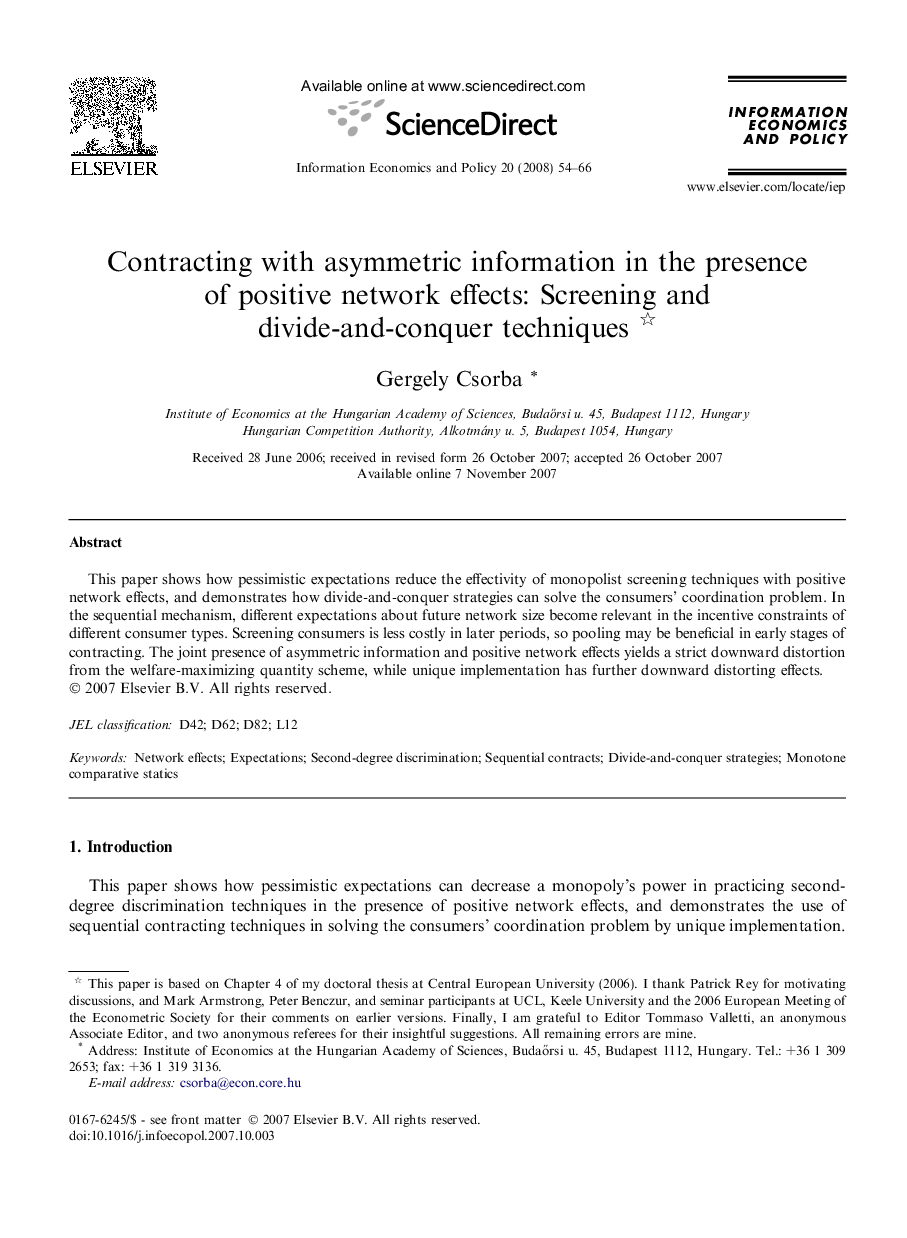| Article ID | Journal | Published Year | Pages | File Type |
|---|---|---|---|---|
| 5075990 | Information Economics and Policy | 2008 | 13 Pages |
Abstract
This paper shows how pessimistic expectations reduce the effectivity of monopolist screening techniques with positive network effects, and demonstrates how divide-and-conquer strategies can solve the consumers' coordination problem. In the sequential mechanism, different expectations about future network size become relevant in the incentive constraints of different consumer types. Screening consumers is less costly in later periods, so pooling may be beneficial in early stages of contracting. The joint presence of asymmetric information and positive network effects yields a strict downward distortion from the welfare-maximizing quantity scheme, while unique implementation has further downward distorting effects.
Related Topics
Social Sciences and Humanities
Business, Management and Accounting
Management of Technology and Innovation
Authors
Gergely Csorba,
